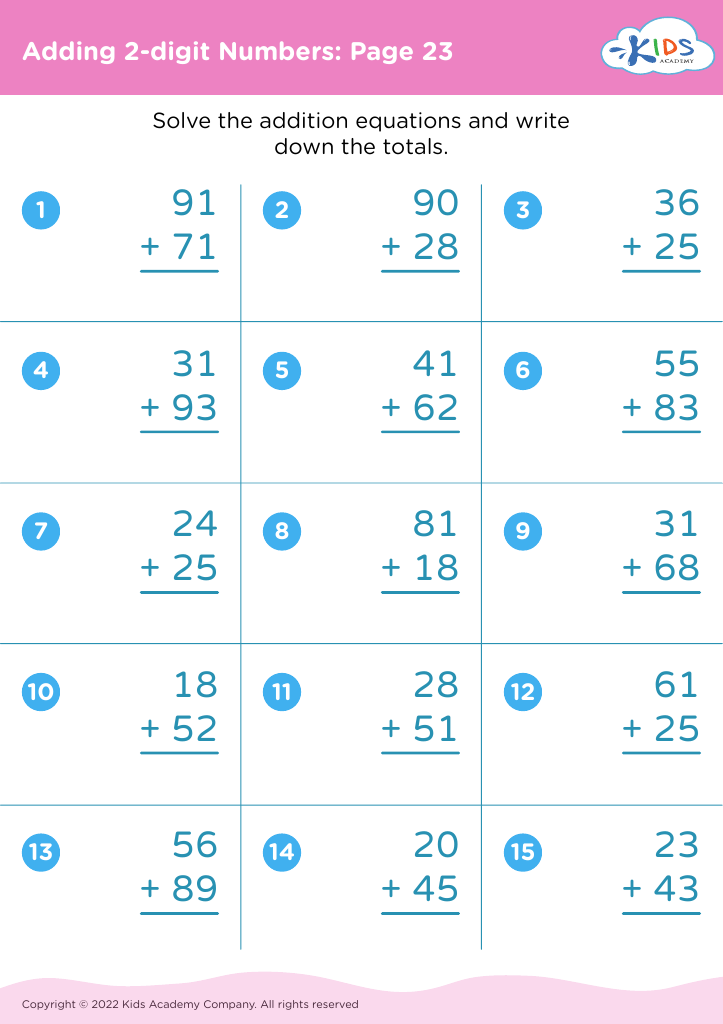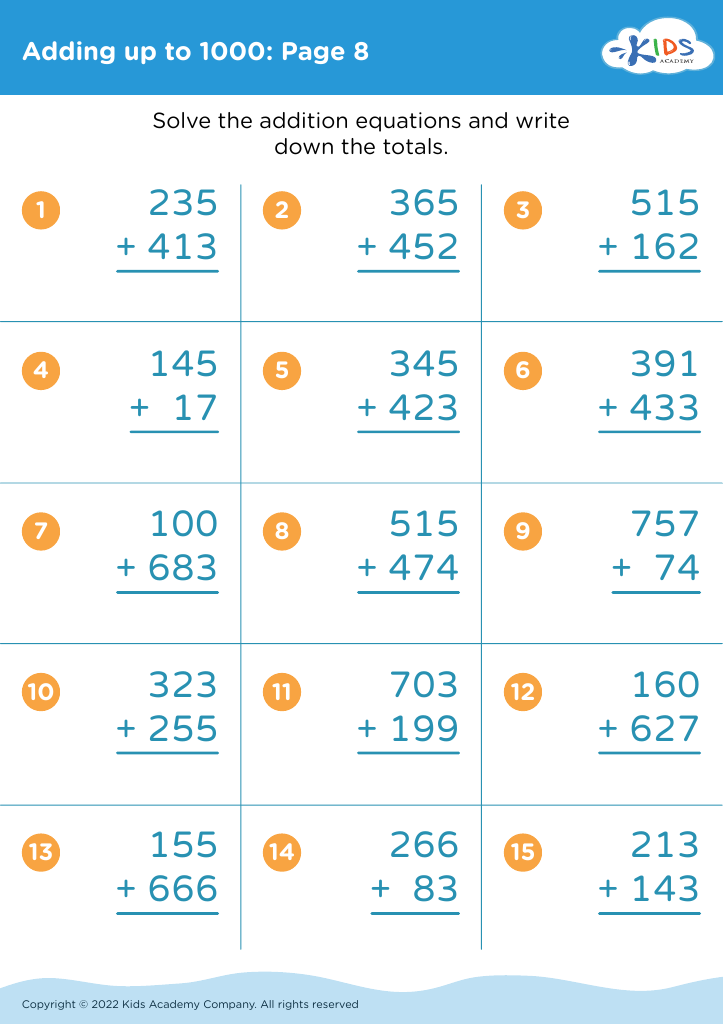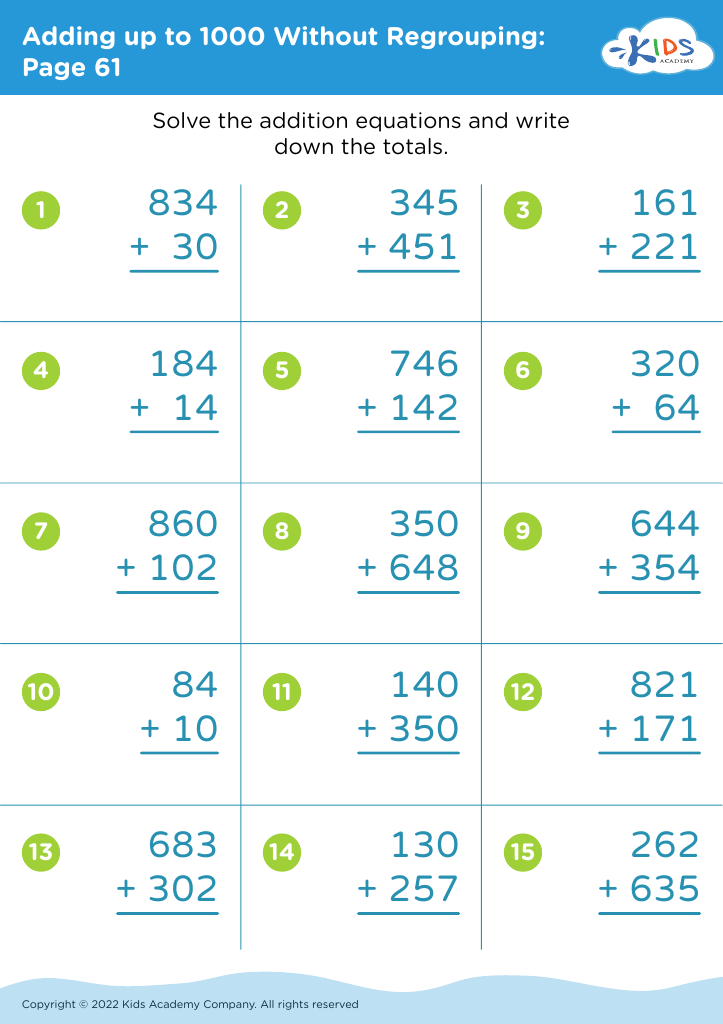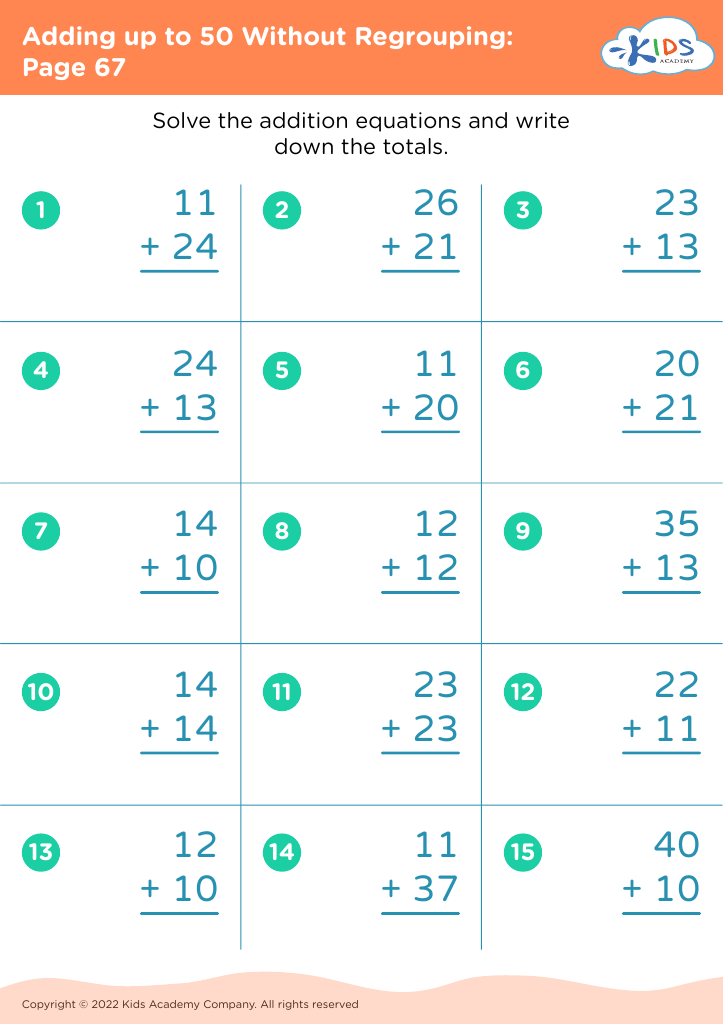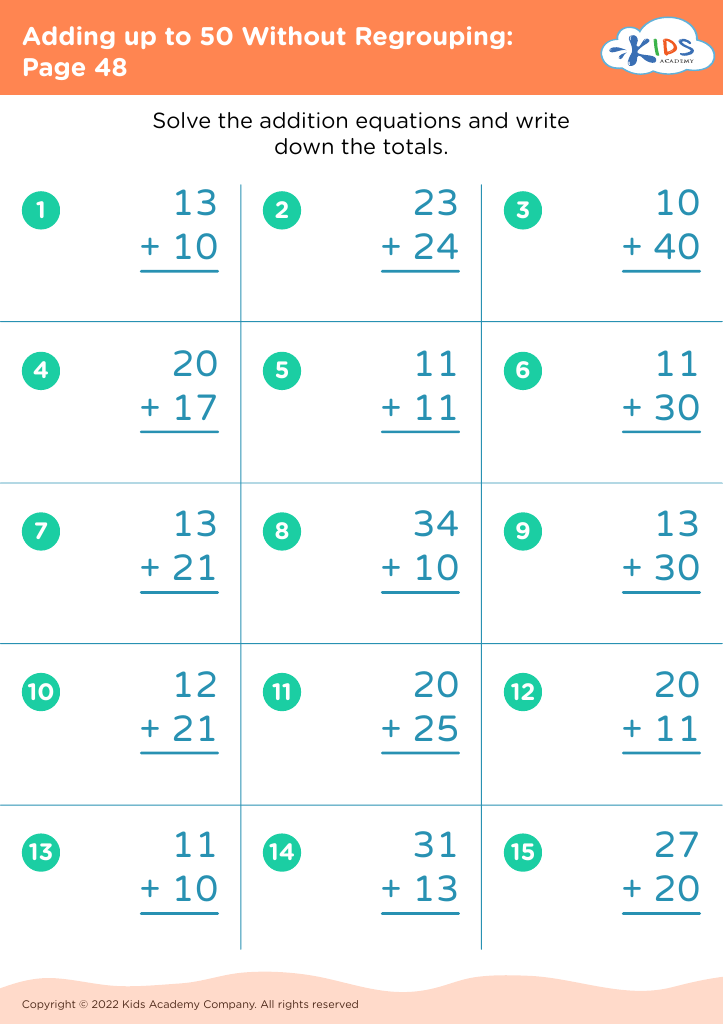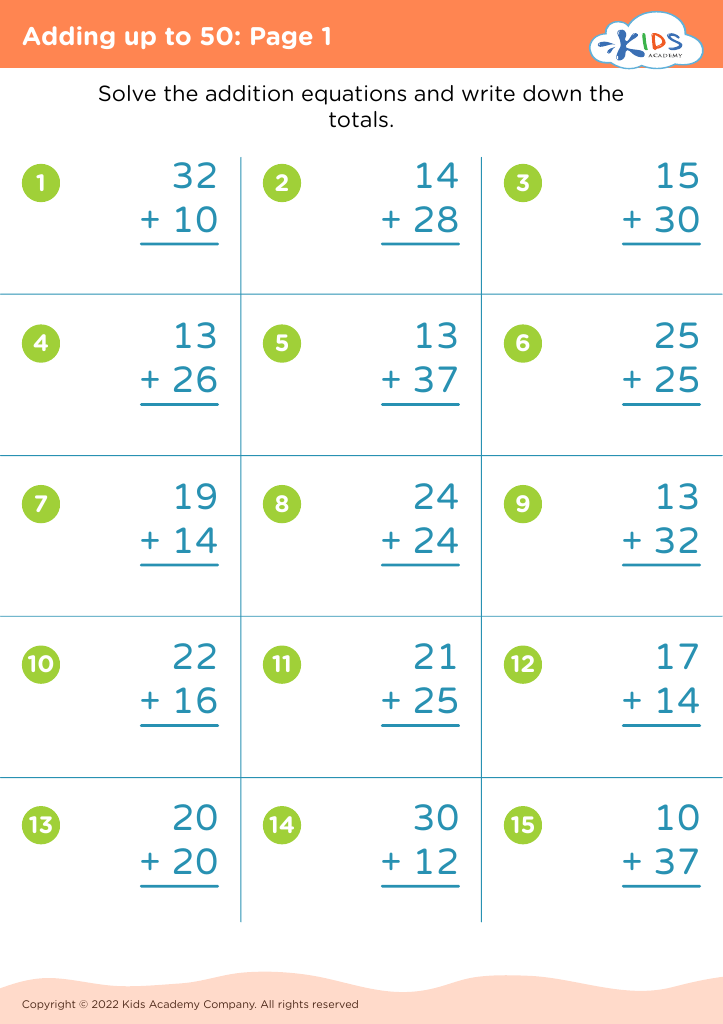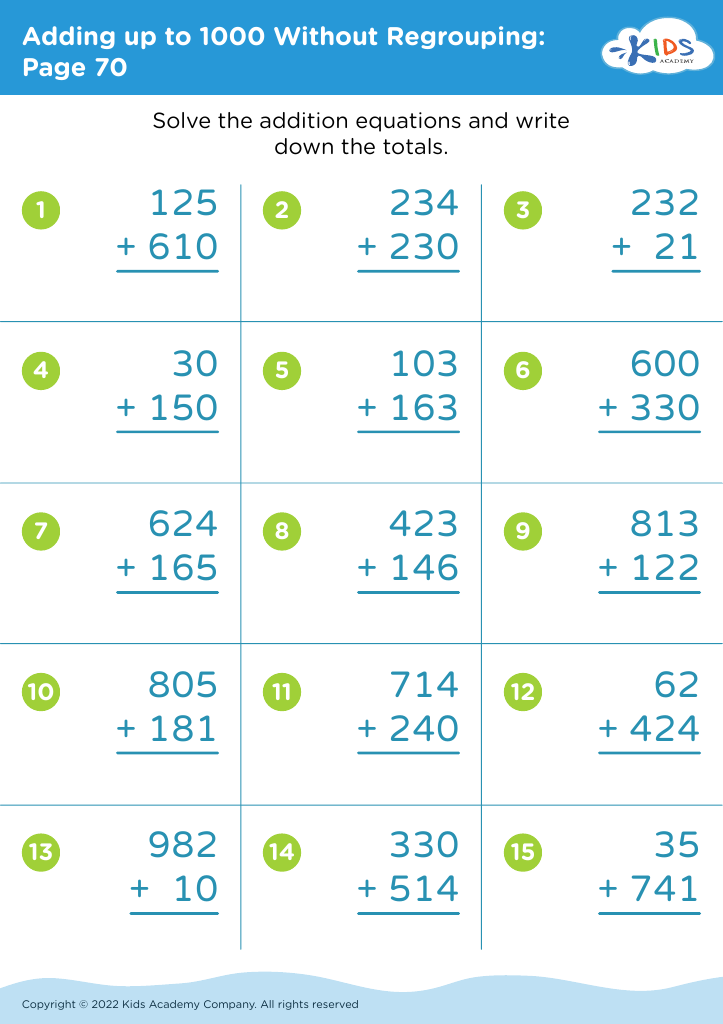Basic Addition Addition Worksheets for Ages 5-9
16 filtered results
-
From - To
Discover a variety of Basic Addition Worksheets designed for children ages 5-9 on Kids Academy. Our engaging and educational worksheets help young learners master fundamental addition skills through fun activities and colorful visuals. These printable resources focus on simple addition problems, boosting confidence, and improving math fluency. Perfect for both classroom and home use, our worksheets cater to various learning styles and abilities. Each sheet is crafted to make learning enjoyable, solidifying core addition concepts and laying a strong mathematical foundation. Encourage your child’s progress today with Kids Academy's expertly designed addition worksheets!
Basic addition is foundational for children aged 5-9 as it sets the stage for all future math learning. During these formative years, understanding basic addition concepts paves the way for more complex mathematical operations such as subtraction, multiplication, and division. Mastery of addition helps children develop strong numerical sense, enabling them to recognize patterns, make connections, and solve problems effectively.
When children learn basic addition, they also improve their critical thinking and problem-solving skills. These skills extend beyond mathematics and into everyday life, as they empower children to tackle challenges systematically and with confidence. Moreover, being proficient in addition instills a sense of accomplishment and boosts a child's confidence, encouraging them to embrace rather than shy away from math-related tasks.
From a practical standpoint, addition is integral in daily activities such as handling money, cooking, and time management. When children acquire and harness basic addition skills early on with the support of parents and teachers, they develop essential tools for making sense of the world around them.
In essence, investing time and effort into teaching and reinforcing basic addition sets children on a path of lifelong learning and functional competence. As such, parents and teachers play a crucial role in fostering a positive and enriching learning environment where foundational math skills can flourish.
